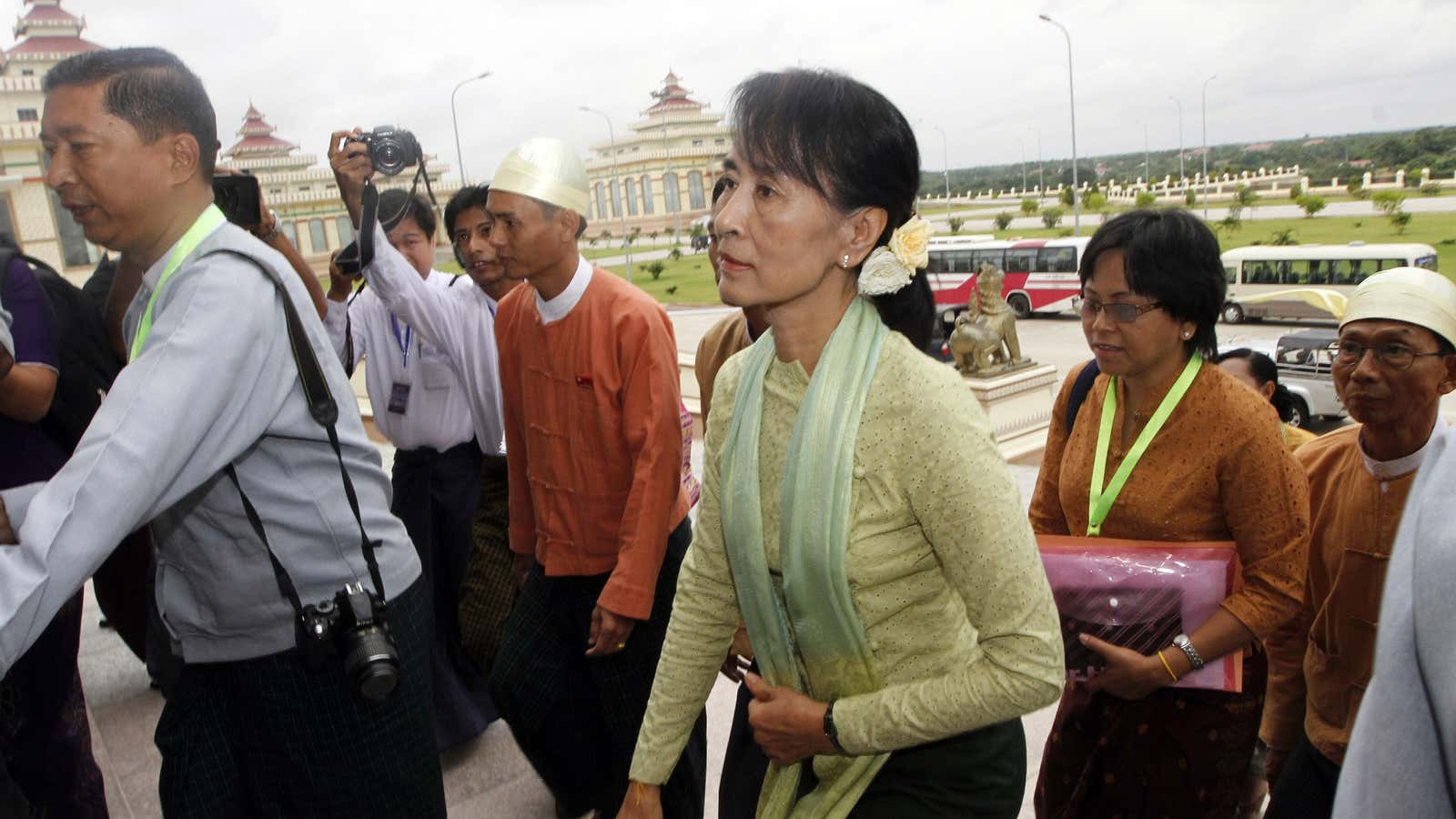The Dalai Lama, leader of the Tibetan Buddhist faith, gave an interview to The Australian on May 28. In it, he appeals to Myanmar’s world-famous Nobel Peace Prize laureate and democracy advocate Aung San Suu Kyi to speak out against a horrific violation of human rights rippling outward from her country: the unceasing persecution of the Rohingya, a predominantly Muslim minority group.
The Rohingya are a stateless people residing in western Myanmar, along the country’s border with Bangladesh. Though they have lived in the area for centuries, the Rohingya are considered illegal immigrants by the Myanmar government, and are subsequently denied basic rights. Many have been corralled into concentration camps where access to food, clean water, healthcare, and employment is scarce.
The Rohingya have garnered global attention of late, as thousands of refugees flood into neighboring Bangladesh. Others have taken to the sea, risking a perilous ocean voyage in order to seek safe haven in other parts of Southeast Asia. The crisis has reached an “alarming level,” Thailand’s foreign minister said on May 29.
Despite international outcry, Myanmar’s most visible freedom fighter remains silent. “It’s very sad. In the Burmese case I hope Aung San Suu Kyi, as a Nobel laureate, can do something,” the Dalai Lama told The Australian. “I met her two times, first in London and then the Czech Republic. I mentioned about this problem and she told me she found some difficulties, that things were not simple but very complicated.”
“But in spite of that I feel she can do something,” he added.
Archbishop Desmond Tutu of South Africa has also expressed concerns over her silence. In contrast, Nobel laureates Jose Ramos-Horta, the former president of East Timor, and Iranian human-rights activist Shirin Ebadi, have taken up the cause. George Soros, himself a one-time refugee from Nazi-occupied Hungary, said he observed “alarming parallels” between the persecution Europe’s Jews during World War II and the that of the Rohingya today.
But Aung San Suu Kyi’s supporters say the “Iron Lotus” is simply biding her time. With a general election just around the corner, Suu Kyi’s National League for Democracy is poised to take a considerable number of seats in Myanmar’s legislature. Given how widespread anti-Rohingya sentiments are among the voting population, it’s possible she is sidestepping the issue for the moment to maintain electability. Some speculate she will address persecution of the Rohingya in the event her party wins a majority.
However, Myanmar’s current constitution forbids her from taking the office of president. The country’s parliamentary speaker, Shwe Mann, has effectively ruled out the possibility of a constitutional referendum prior to 2015 elections. What’s more, Suu Kyi has openly denied any presidential ambitions: “Being president is not my dream,” she said in Jan. 2015, according to the BBC. (Though many remain skeptical.) These realities render her silence on the Rohingya issue quite puzzling, and not a little bit troubling.




